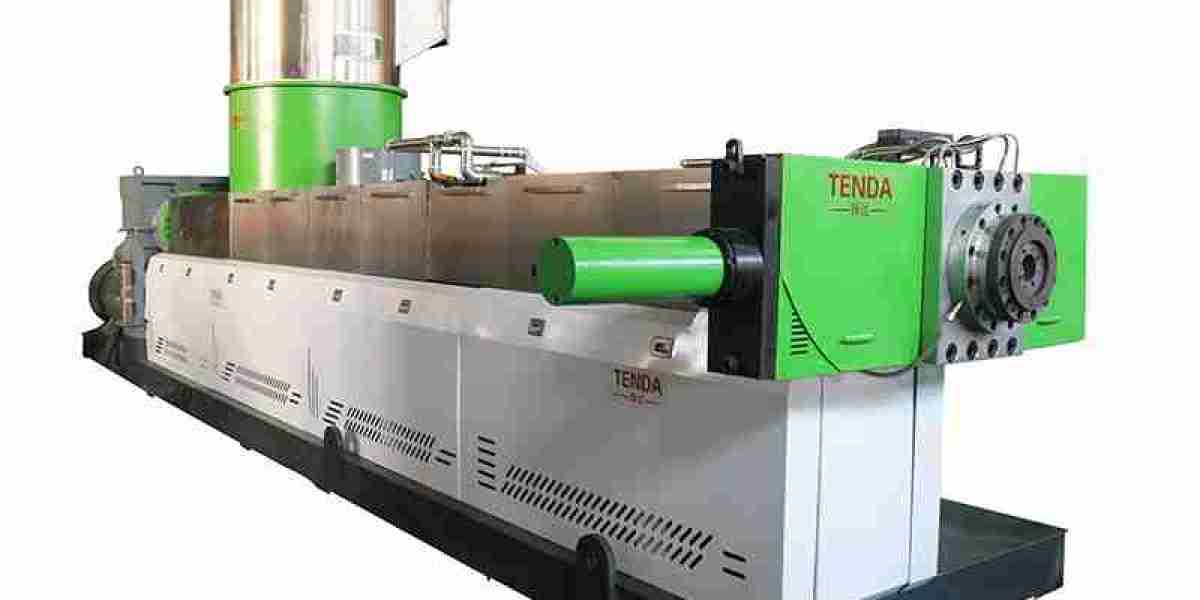Extrusion is a widely used manufacturing process in various industries, including plastics, food, and pharmaceuticals. It involves forcing material through a die to create continuous shapes. The two main types of extruders are single screw and twin screw extruders. Each type has its unique characteristics, advantages, and applications. Understanding these differences is essential for selecting the right extruder for specific manufacturing needs.
Single Screw Extruders: Overview
plastic single screw extruder consist of a single helical screw that rotates within a cylindrical barrel. The material is fed into the hopper and is transported along the screw's length by the screw's rotation. As the material moves, it is subjected to heat and pressure, which causes it to melt and flow through the die. Single screw extruders are known for their simplicity and ease of operation, making them a popular choice for many applications.
Advantages of Single Screw Extruders
One of the primary advantages of single screw extruders is their cost-effectiveness. They are generally less expensive to purchase and maintain compared to twin screw extruders. Additionally, single screw extruders are easier to operate and require less specialized training for operators. Their design also allows for straightforward cleaning and maintenance, which is crucial for industries that require frequent material changes.
Limitations of Single Screw Extruders
Despite their advantages, single screw extruders have some limitations. They are less efficient in mixing and compounding materials compared to twin screw extruders. The melting process can be uneven, leading to potential quality issues in the final product. Furthermore, single screw extruders may struggle with processing highly viscous materials or materials that require precise temperature control.
Twin Screw Extruders: Overview
Twin screw extruders feature two intermeshing screws that rotate in the same direction or opposite directions within a barrel. This design allows for better mixing, compounding, and temperature control. Twin screw extruders are particularly effective for processing a wide range of materials, including those that are difficult to melt or require specific additives.
Advantages of Twin Screw Extruders
The primary advantage of twin screw extruders is their superior mixing capabilities. The intermeshing screws create a high shear environment, which enhances the dispersion of additives and fillers. This results in a more homogeneous final product. Additionally, twin screw extruders offer better control over the processing conditions, allowing for precise temperature and pressure management. This is particularly beneficial for applications that require strict quality control.
Limitations of Twin Screw Extruders
While twin screw extruders offer many advantages, they also come with some drawbacks. They are generally more expensive to purchase and maintain than single screw extruders. The complexity of their design requires more specialized training for operators, which can increase operational costs. Furthermore, the cleaning process can be more time-consuming due to the intricate design of the screws and barrel.
Applications of Single Screw Extruders
Single screw extruders are commonly used in applications such as film and sheet extrusion, pipe and profile extrusion, and pelletizing. They are well-suited for processing thermoplastics and are often used in the production of products like plastic bags, containers, and pipes. Their simplicity and efficiency make them a reliable choice for many manufacturers.

Applications of Twin Screw Extruders
Twin screw extruders are widely used in applications that require advanced mixing and compounding. They are commonly found in the production of masterbatches, food products, and specialty polymers. Industries that require precise control over the processing conditions, such as pharmaceuticals and food processing, often prefer twin screw extruders for their superior performance.
Choosing the Right Extruder
When selecting between a single screw and a twin screw extruder, manufacturers must consider several factors. These include the type of material being processed, the desired product quality, production volume, and budget constraints. For applications that require high mixing efficiency and precise control, twin screw extruders may be the better choice. Conversely, for simpler applications with lower production requirements, single screw extruders may be more cost-effective.
Conclusion
In conclusion, both single screw and twin screw extruders have their unique advantages and limitations. Single screw extruders are known for their simplicity and cost-effectiveness, making them suitable for various applications. On the other hand, twin screw extruders excel in mixing and compounding, offering superior control over processing conditions. Understanding the differences between these two types of extruders is essential for manufacturers to make informed decisions that align with their production needs





